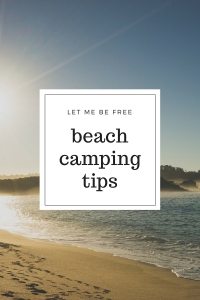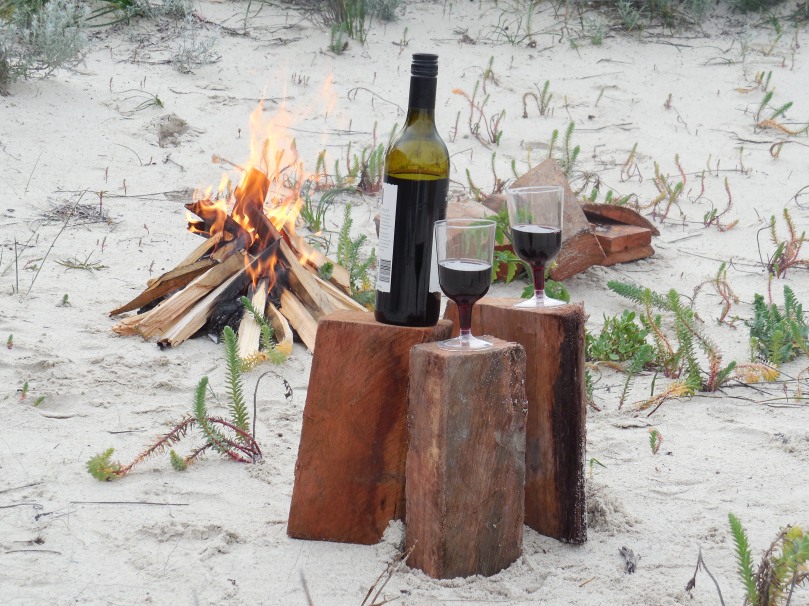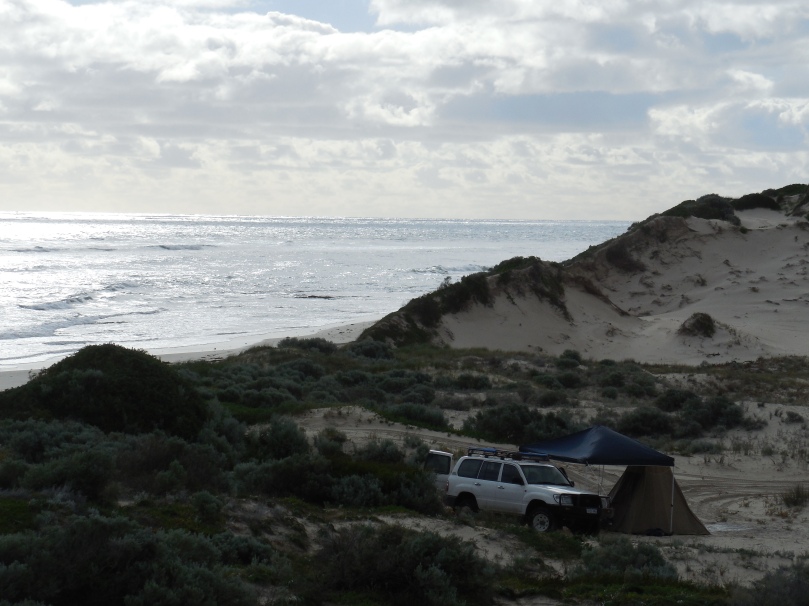
Finding a secluded beach and setting up camp is absolute bliss. We often get off road in our 4wd, hit the tracks north of Perth and find a place along the coast to camp. If you are planning on going beach camping then here are a few tips to help you on your way.
Camping Supplies
You have your tent, sleeping bag, cooking equipment and everything else you need for camping. On top of your normal camping gear I recommend getting some sand pegs. Normal tent pegs will not hold however sand pegs go into the ground easily and stay in position.
A dustpan and brush are perfect for sweeping out the tent and to brush the sand off your feet before you hop into the tent. There is nothing worse than sleeping with sand in your tent.
If you are new to camping or would like a detailed list of all the equipment required you can view my list here.
Check the tide
Before you set off on your camping trip it is a good idea to check the tide to give you an idea on where you can pitch your tent. Often you can tell how high the tide normally goes from the water marks in the sand. Using these marks it not always a guarantee of the water level as mother nature often has a different idea. Make sure you pitch your tent a long way back from the ocean as you don’t want to find water lapping at your feet in the middle of the night.
Wind
Check the wind forecast so you have some idea of the wind direction. Use your surrounds to get protection from the wind, it might be some rocks, a sand dune or even your 4wd can help block some wind from your camp. Set your tent up so that the entrance is sideways to the wind direction.
Protection from the elements
There is often little protection from the sun, wind and rain while you are camping on the beach. We use a gazebo which can easily be moved around your site to suit the situation. The Australian sun can be very harsh so we use a gazebo as protection from the sun. It also comes in handy when it rains to keep you dry. If it is particularly windy or the rain is coming in on an angle you can put up a tarp to block the wind or rain. Many of the gazebos have walls you can add which is a better fit than a tarp.

Native Animals, Insects and Reptiles
Check your surroundings to make sure you are not setting up camp near a native animals home. Australia is home to lots of creatures, some dangerous and others that are just a little annoying. Beware of snakes, bees and crocodiles (depending on the area). At one camp site we soon discovered there was a beehive close by. The bees were attracted to our food and didn’t leave us alone. We ended up filling up a cup of cool drink and put it away from our camp. The bees were attracted to this sweet drink and it helped reduce the amount of bees that invaded our site.
Bring your own firewood
Campfires are great to cook on, to keep warm or simply enjoy having a few drinks and spin a yarn by the fire. There is usually little wood around the beach and you don’t want to look for wood in the dunes. It is important to stay off the dunes as much as possible to avoid damaging plants which help hold the sand.
In general campfires are not permitted from 1 December to 31 March, but it may vary from place to place. It is best to check in your local area (DFES website for WA) to ensure you are permitted to have a fire. Once you have finished with the fire make sure it is completely extinguished with water.
It is best to bring your own firewood and that way you are guaranteed to have enough wood to keep the camp fire burning bright.

Bring your own water
Bring plenty of drinking water especially if it is hot. It is important to drink lots of water to avoid dehydration.
Slip, Slop, Slap
Be sun smart, slip on a shirt, slop on some sunscreen, slap on a hat and seek shade. It doesn’t take long to get sunburnt so make sure you cover up.
Take out your rubbish
Let’s keep Australia beautiful and remove all your rubbish so that others can enjoy the beach.

Most importantly relax, keep warm by an open fire, maybe try your hand at fishing or beach cricket and enjoy your camping adventure.
Keep up to date with what is happening on the blog via facebook. Click here to join.
** Some of the links in this post are affiliated links. If you click to buy the item, I make a little commission but you don’t pay any extra. **

[…] via Beach Camping Tips — Let Me Be Free […]
LikeLike
I love these tips! Thanks for sharing! XX
Lisa | http://www.fromdreamtoplan.net/
LikeLike
No worries, enjoy your travels!
LikeLiked by 1 person
WA beaches are the best in the country.
LikeLike
I totally agree with that statement!
LikeLiked by 1 person
Beach camping sounds like fun. I might actually be able to do beach camping.
How do you go with sand in the sleeping bags?
LikeLike
I brushed my feet off before I went into the tent so it wasn’t too bad. Just need to train my kids not to bring half of the beach into the tent.
LikeLike
I’ve only ever camped once or twice at school and never on the beach. I think I’d like that best…probably because I live by the beach 🙂
LikeLike
I love listening to the ocean as you go to sleep.
LikeLike
That fire looks so good. I’m half tempted to find out where and when you are camping next and crash the party.
LikeLike
BYO wine!
LikeLike
Great set of tips – dustpan a must have of course!
LikeLike
Nothing worse than sand in your sleeping bag!
LikeLike
[…] Beach Camping Tips […]
LikeLike
[…] right away from everything and go camping. There is something about camping on the beach and going to sleep listening to the sounds of the waves crashing on the shore. Camp in the bush, […]
LikeLike
[…] Beach Camping Tips […]
LikeLike
We don’t have a lot of places to camp on the beach in South Australia, so looking forward to hitting the road and finding more spots! Thanks for the tips 🙂
LikeLike
Enjoy your travels!
LikeLike
This post has some fantastic tips for a smooth and enjoyable beach camping trip. Packing light, preparing for sand, securing your tent, and planning for sun protection are all critical considerations. Following this practical advice will allow you to make the most of camping by the water and avoid some common frustrations.
LikeLike